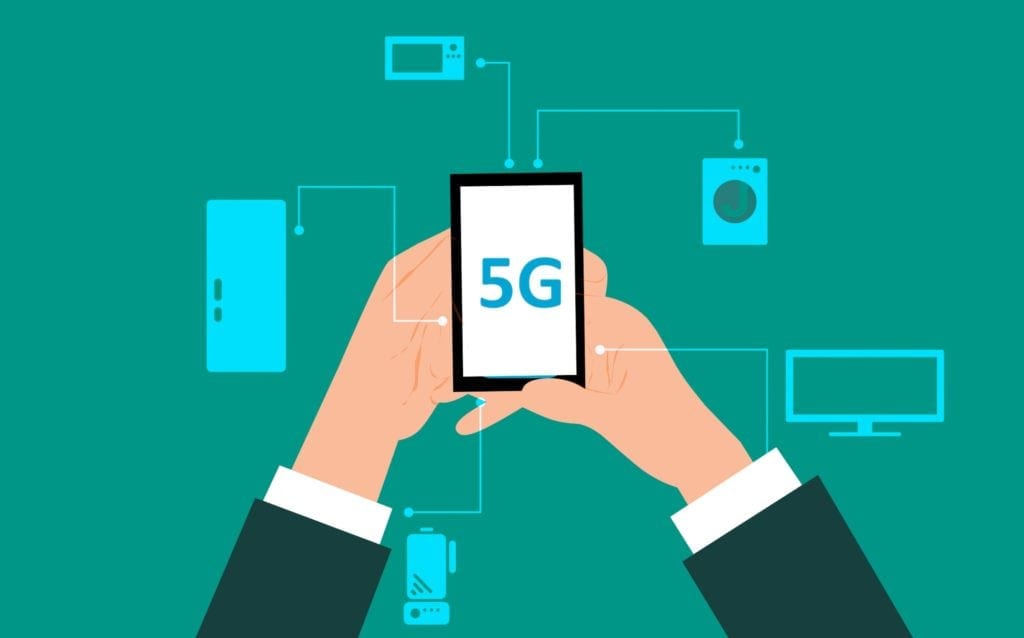5G Internet is Here & These Wireless Providers Want You to Test it Out
Tired of slow Internet speeds? Are your cat videos not loading fast enough? Do you find yourself reading books to fill the passing time as your movies download? Well, 5G is probably the solution to this predicament. Promising speeds 10 times faster than 4G, this fifth-generation (5G) network is likely to replace broadband connection methods. Currently data-hungry applications are putting a strain on low-frequency networks, so AT&T, T-Mobile, Sprint, and Verizon are already testing this technology to try and implement it as soon as possible. Aside from large the amount of time 5G networks would take to become a staple in the real world, it’s going to cost a lot. Laying cable is expensive, but in comparison to the three-hundred-billion dollars 5G will require, maybe it is the cheapest solution.
Is 5G an Improvement?
By replacing 4G networks, reliability, coverage, and speed of wireless Internet should increase tenfold. But let’s crunch some numbers and just make sure. Of course, because 5G has yet to be implemented in the real-world, these are all “predicted” performance statistics, so they’re going to sound a lot better than they actually will be.
5G works in a very different way than 4G to make wireless connections more practical and efficient. Standard 4G towers send data off in all directions, which wastes power and energy when radio waves are either sent to the middle of nowhere or places that aren’t using the Internet. Instead, 5G utilizes much smaller, concentrated waves which will support over one-thousand more devices than 4G. Unfortunately, high frequencies don’t work well in certain weather (humidity, rain, etc.), which means the placement of these 5G antennas has to be strategic. Plus, IT support professionals have to be able to find these access points to fix them when something inevitably goes awry.
Speed wise, 5G has a maximum download rate of about 20 Gb/sec. This is twenty times faster than 4G’s peak speed of 1 Gb/sec. However, normal real world 4G speeds average about 1% of that at 10 Mb/sec, while the average for 5G is proposed to be 0.5% of the max coming in at 100 Mb/sec. So it’s an even bigger waste of signal, but with the added available bandwidth you won’t have any problems loading your cat videos now!
Does 5G have a future?
The short answer to the question above is yes, but here’s why. There will be visible improvements upon the current functionality of technology. And new opportunities will arise from it. Households that choose to replace cable with 5G will notice having significantly better bandwidth even with more devices connected. It will be easier to create smart homes with wireless: thermostats, security cameras, door knobs, lights, etc.
Like all new tech, we have to be slightly skeptical. This is a three-hundred billion dollar endeavor we’re talking about. But 5G is probably necessary in order to keep up with tech revolution of virtual reality, self-driving cars, and deep-space research. Let’s face it; our current networks are struggling to keep up. But cell phones and other smart devices don’t support 5G, and it’ll be a while before they do. Luckily, the proposed timeline for 5G says that it won’t hit the entire US until 2020, so there’s plenty of time to release new technology and pressure everyone into buying new phones, similarly to how Apple constantly changes the size of their charging ports.
Getting the Ball Rolling
Starting off in Houston, TX, Verizon has announced they are going to begin testing 5G by having it act similarly to broadband internet, only allowing devices to be connected within a certain distance. To persuade consumers to convert to 5G, Verizon has partnered with Apple and Google to offer free subscriptions to Apple TV or YouTube TV when people switch over their household Internet. And Verizon also probably did that to compete with AT&T, who is launching 5G in Charlotte, Dallas, Oklahoma City, and Atlanta later this year. But most phones still can’t use 5G. As of August 2nd, 2018, Motorola announced themselves as the first manufacturer to bring 5G to mobile consumers with their new smartphone, moto z3, meanwhile we are still waiting to hear from other smartphone providers.
We can’t lie; faster Internet does sound nice. There will be less lag playing online video games, which is the jackpot for IT guys. Plus, it will make our jobs easier when we help people get their technology up and running. This tech revolution is going to require quicker Internet speeds for sure, which means (oh, darn!) our cat videos will load faster too.



VIEW ALL